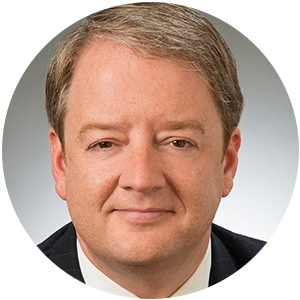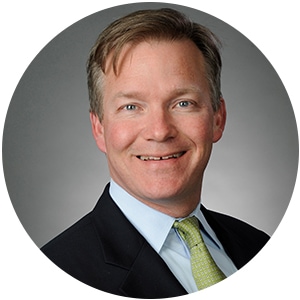Regulations on the financial services industry aren’t going away any time soon. Neither are interest rate hikes. These factors dominated this year’s Best Securities Services Providers award winners.

Laws And Interest Rates Loom Over Securities
The past year has been rife with political and financial shakeups. In 2016, the world saw Britain vote to leave the European Union, and the United States take on a new leader and worldview. Financial services also saw some shifts. Overall, securities services (including sub-custody, corporate trust, prime services, global custody, agency securities lending, fund services and collateral management) declined 4%, from $61 billion in 2015 to $58 billion last year. According to Coalition, an analytics and research firm, the biggest drops occurred in prime services, fund services and sub-custody. Geographically, drops occurred in the EMEA and Asia-Pacific regions.
Eric Li, London-based research and analytics director with Coalition, notes that the biggest decline occurred in the Asian markets due to China’s slowdown. “Asia-Pacific activity has slowed down significantly,” he says. “The Asia revenue pool has fallen 17% over the year, and therefore we’ve see the Asian drop affecting the global revenue pool quite significantly. The second biggest reason for the 4% [global] decline has been overall margin pressure, which continued to add further pressures for most of the fee-based services during 2016. As a result, you see that while the broader industry has edged up slightly during the year, we’ve actually seen revenue fall compared to the same time last year.”
Despite overall declines, the industry had some bright spots. Corporate trust services gained 7%, mainly due to higher transaction volume, according to Li. Also, global custody outperformed the overall industry, “mainly due to higher net interest income and a higher interest rate environment, particularly in the United States,” he adds.

Looking to 2017, the likelihood of rising interest rates will mean higher net interest income, similar to the past year. But regulations like Europe’s Markets in Financial Instruments Directive (MiFID II) could put margin pressure on asset managers, and as a result, the financial service companies that service them. MiFID II is the EU legislation that regulates firms that provide services to clients linked to financial instruments (shares, bonds, unit and investment trusts and derivatives) and the venues where those instruments are traded.
Many, if not most, providers have become more cost-efficient over the past couple of years in response to margin pressures, by incorporating new technologies into their trading and lending platforms. They’re also making changes at the mid-office or back-office levels to keep costs low–something Li says is one of the major business parameters everyone is focused on at the moment.
Global Finance’s securities services awards include our 15th annual listing of the world’s best subcustodians, the institutions that most effectively handle security portfolios in regional and local markets on behalf of global custodians and investors. We have selected the most reliable subcustodians in eight regions and 80 countries. The winning firms are the safest securities services providers and have the most in-depth knowledge of local markets and regulatory regimes.
Many emerging market nations have improved regulations and eased access to their markets for foreign investors, with the advice and support of these leading firms. Global Finance’s editorial board made use of market research, input from expert sources and information from bank entries to select the winners. Criteria included customer service, competitive pricing, smooth handling of exception items, advanced technology platforms, post-settlement operations, business continuity plans and commitment to the business. The winning subcustodians also keep on top of changing regulatory environments and adapt to new initiatives to make markets more efficient. Service providers are being forced to adapt to changing regulations and markets. And those that have risen to the top are taking advantage of new opportunities.
The Awards
There have been relatively few changes in the rankings since last year. Northern Trust remains Best Global Custodian, JP Morgan Chase remains Best Global Collateral Manager, and BNY Mellon remains Best Global Corporate Trust Services Provider. The two changes from last year are in the Best Global Prime Broker category, where JP Morgan Chase took the lead from Morgan Stanley, and Best Securities Lender, which changed to BNY Mellon from State Street.
In the case of both Best Global Corporate Trust and Best Securities Lender, BNY Mellon has taken its service provider businesses and created an integrated approach. Rather than parsing out services, it is looking at the business as one unit to retain and grow market share in a $3 trillion industry.
“We think of it as a single enterprise,” notes Bill Kelly, managing director and global head of agency securities finance with BNY Mellon. “Even though it’s regionally and geographically diverse, it’s a single platform that allows us to engage with clients in each of those regions.”

He notes that the industry has moved beyond the financial crisis of nearly 10 years ago and regulations have taken root and become a prominent driver of behavior. The result is that all asset classes are traded in all regions, and collateral flexibility has evolved. As the new rules are implemented, nimbleness and flexibility are essential for businesses to prosper.
“So I think it’s the combination of organizational construct, the coordination globally and then using the technology as an enabler” that has helped all service elements of the business, Kelly added.
BNY Mellon has also invested in more technology, which provides traders with a quicker response time in terms of assessing trades and responding to borrowers and counterparties. Much of that investment was made post-financial crisis, when perhaps it wasn’t needed or demanded, but it has helped raise the bar for clients who now expect it in their service provider banks.
Growth can come from acquisitions, too. JP Morgan Chase started its prime brokerage business in 2008, in the heart of the financial crisis, with the acquisition of Bear Stearns. Since then, it has propelled itself to be ranked Best Prime Broker for 2017, taking the spot from Morgan Stanley, and Best Collateral Manager. By 2010, after some of the dust had settled, the company invested in its business and later launched an Asia-specific prime platform. According to its 2016 annual report, JP Morgan Chase has “grown synthetic revenue by 48% and cash revenue by 12% within our prime brokerage business” since 2014.
From a collateral management standpoint, JP Morgan attributes its success to an agnostic take on its clearing broker and custodian view. The bank can source transaction data from all brokers and provide a more comprehensive view of margin requirements and other obligations requiring collateralization.
For the second year in a row, Northern Trust has taken the top spot as Best Global Custodian. Overall, the company’s banking and capital markets businesses see opportunities in higher interest rates. “We see higher nominal short term interest rates impacting the business in a positive way, because as rates start to increase there are opportunities to invest the cash collateral at higher rates while the liability side will take longer to reset,” says George Trapp, head of Northern Trust’s securities lending client relations for North America. “This provides additional revenue for clients.”
Trapp also notes that interest rate hikes will increase demand for securities lending activity overall, leading to higher fees for loans—benefiting both Northern Trust and its clients. And much like other award-winners this year, Northern Trust is conscious of how approaching regulations will affect it going forward. “We’ve already had to adapt to a regulatory environment that’s more strict on borrowers and us [lending agents]. The result has been less demand for some trade activity because of the impact of those regulations. If regulations are revised to better align the risk with the required capital, or repealed altogether, then it should increase the loan activity and benefit borrowers and lenders in the securities finance industry,” he explains.
Corporations have long used depositary receipts (introduced in 1927) to raise their profile with foreign investors and to raise capital outside their home market, especially in the US.
BNY Mellon is the leading global bank for depositary receipts (DRs), financial instruments which represent foreign companies’ publicly traded securities. The bank holds a 57% market share of all sponsored DR programs. Altogether, there were more than 3,400 sponsored and unsponsored DR programs in existence at the end of 2016. Unsponsored programs are established without the direct involvement of the foreign company.
“Depositary receipts continue to be an integral part of the capital markets framework, easing the process of cross-border capital flows,” says Christopher Kearns, chief executive officer, BNY Mellon Depositary Receipts.
BNY Mellon is the depositary bank for more than 2,600 American and global depositary receipt programs (ADRs and GDRs) for companies from more than 65 countries. German automaker BMW selected BNY Mellon last July as depositary bank for its sponsored ADR program, replacing previously unsponsored programs. In the past three years, 19 companies have switched from unsponsored to sponsored DR programs with BNY Mellon. BMW says it made the switch to facilitate access to its stock for global investors and to further broaden its shareholder base in the long term.
Companies raised $8.2 billion through 39 DR programs in 2016. Some 94% of all DR capital raising was executed via Nasdaq and the New York Stock Exchange, according to Deutsche Bank’s review of last year’s activity.
Deutsche Bank was appointed depositary bank for the initial public offering of trivago, the largest DR capital raising in Europe last year. Germany-based trivago, which operates the world’s largest hotel-price comparison site, raised $330 million and issued 30 million American depositary receipts, which trade on Nasdaq.
The German bank also supported a $1.4 billion structured sell down and follow-on offering of an equity interest in Hong Kong–based casino operator Melco Crown Entertainment. In addition, Deutsche Bank worked on the complex $28 billion merger of Dutch grocer Ahold and its Belgian rival, Delhaize, last July. The merger brought US supermarket chains Stop & Shop and Food Lion under common ownership.
Telstra, Australia’s largest telecom, transferred its sponsored Level 1 ADR program to Deutsche Bank in October 2016. This was the largest transfer of a Level 1 program by market capitalization last year.
As 2017 moves past the halfway mark, securities providers are looking toward the interest rate environment as well as the political environment to perhaps remove some of the regulatory burden. Regulations like MiFID II, which will take effect on January 3, 2018, are affecting businesses, but are still not fully implemented. The decline in the overall market from 2015 to 2016, as was noted earlier, has much to do with regional influences shifting. This appears to be a transition year in which cost efficiencies and margins will remain important parts of the equation.
GLOBAL AWARDS | |
|---|---|
|
Best Global Custodian |
Northern Trust |
|
Best Global Prime Broker |
JP Morgan |
|
Best Global Securities Lender |
BNY Mellon |
|
Best Bank for DR Capital Raising |
Deutsche Bank |
|
Best Global Collateral Manager |
JP Morgan |
|
Best Global Bank for Depositary Receipts |
BNY Mellon |
|
Best Global Corporate Trust Services Provider |
BNY Mellon |
REGIONAL AWARDS | |
NORTH AMERICA | |
|
Best Global Custodian |
Northern Trust |
|
Best Subcustodian |
Citi |
|
Best Prime Broker |
Goldman Sachs |
|
Best Securities Lender |
BNY Mellon |
WESTERN EUROPE | |
|
Best Global Custodian |
BNP Paribas |
|
Best Subcustodian |
BNP Paribas |
|
Best Prime Broker |
Credit Suisse |
|
Best Securities Lender |
BNP Paribas |
NORDIC REGION | |
|
Best Global Custodian |
SEB |
|
Best Subcustodian |
Nordea |
|
Best Prime Broker |
SEB |
|
Best Securities Lender |
SEB |
CENTRAL & EASTERN EUROPE | |
|
Best Global Custodian |
Citi |
|
Best Subcustodian |
UniCredit |
|
Best Prime Broker |
BNP Paribas |
|
Best Securities Lender |
UniCredit |
ASIA-PACIFIC | |
|
Best Global Custodian |
Standard Chartered |
|
Best Subcustodian |
Standard Chartered |
|
Best Prime Broker |
Morgan Stanley |
|
Best Securities Lender |
Citi |
LATIN AMERICA | |
|
Best Global Custodian |
Citi |
|
Best Subcustodian |
Itaú Unibanco |
|
Best Prime Broker |
Morgan Stanley |
|
Best Securities Lender |
Citi |
MIDDLE EAST | |
|
Best Global Custodian |
HSBC |
|
Best Subcustodian |
Standard Chartered |
|
Best Prime Broker |
ADS Securities |
|
Best Securities Lender |
HSBC |
AFRICA | |
|
Best Global Custodian |
Standard Chartered |
|
Best Subcustodian |
Standard Bank |
|
Best Prime Broker |
Peregrine |
|
Best Securities Lender |
Standard Bank |
COUNTRY AWARDS – SUBCUSTODY | |
|---|---|
|
Argentina |
Citi |
|
Armenia |
Ameriabank |
|
Australia |
National Australia Bank |
|
Austria |
UniCredit Bank Austria |
|
Bahrain |
Standard Chartered Bank |
|
Belgium |
BNP Paribas |
|
Brazil Itaú |
Unibanco |
|
Bulgaria |
UniCredit Bulbank |
|
Canada |
Royal Bank of Canada |
|
Chile |
Banco de Chile |
|
China |
China Construction Bank |
|
Colombia |
Citi |
|
Croatia |
Splitska banka |
|
Cyprus |
Bank of Cyprus |
|
Czech Republic |
UniCredit Bank Czech Republic |
|
Denmark |
Nordea |
|
Egypt |
Commercial International Bank |
|
Estonia |
Swedbank |
|
Finland |
Nordea |
|
France |
Société Générale |
|
Georgia |
Bank of Georgia |
|
Germany |
BNP Paribas |
|
Ghana |
Standard Chartered Bank |
|
Greece |
Eurobank Ergasias |
|
Hong Kong |
HSBC |
|
Hungary |
Raiffeisen Bank International |
|
Iceland |
Landsbankinn |
|
India |
Standard Chartered |
|
Indonesia |
Standard Chartered |
|
Ireland |
HSBC |
|
Israel |
Bank Leumi |
|
Italy |
Intesa Sanpaolo |
|
Japan |
Bank of Tokyo-Mitsubishi |
|
Jordan |
Standard Chartered |
|
Kazakhstan |
Altyn Bank (Halyk Bank) |
|
Kenya |
Standard Chartered |
|
Kuwait |
HSBC |
|
Latvia |
Swedbank |
|
Lithuania |
Swedbank |
|
Luxembourg |
Société Générale |
|
Malaysia |
Maybank |
|
Mauritius |
HSBC |
|
Mexico |
BBVA Bancomer |
|
Mongolia |
BNP Paribas |
|
Morocco |
Société Générale |
|
Mozambique |
Standard Bank Mozambique |
|
Namibia |
Standard Bank Nambia |
|
Netherlands |
BNP Paribas |
|
New Zealand |
National Australia Bank |
|
Nigeria |
Stanbic IBTC Bank |
|
Norway |
Nordea |
|
Oman |
HSBC |
|
Pakistan |
Standard Chartered Bank |
|
Paraguay |
Banco Itaú Paraguay |
|
Peru |
Citi |
|
Philippines |
HSBC |
|
Poland |
Raiffeisen Bank International |
|
Portugal |
Novo Banco |
|
Qatar |
HSBC |
|
Romania |
Société Générale |
|
Russia |
Société Générale |
|
Saudi Arabia |
HSBC Saudi Arabia |
|
Serbia |
UniCredit Bank Serbia |
|
Singapore |
DBS Bank |
|
Slovakia |
Raiffeisen Bank International |
|
Slovenia |
UniCredit Bank Slovenija |
|
South Africa |
Nedbank |
|
South Korea |
KEB Hana Bank |
|
Spain |
BBVA |
|
Sri Lanka |
Citi |
|
Sweden |
SEB |
|
Switzerland |
Credit Suisse |
|
Taiwan |
CTBC Bank |
|
Thailand |
Bangkok Bank |
|
Tunisia |
Société Générale |
|
Turkey |
TEB |
|
UAE |
HSBC |
|
United Kingdom |
HSBC |
|
United States |
Citi |
|
Uruguay |
Itaú Unibanco |
|
Vietnam |
Standard Chartered |



